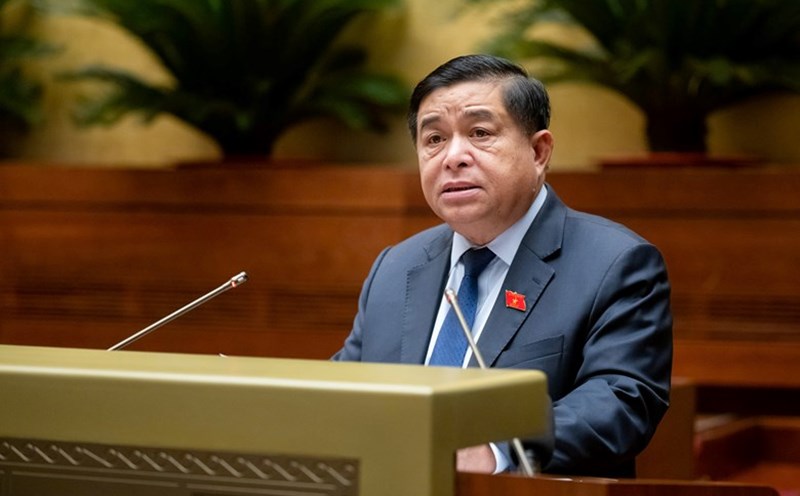Discussing in groups at the 8th Session of the 15th National Assembly on the draft Law on Public Investment (amended), National Assembly deputies requested further clarification on the reasons and basis for the proposal to triple the scale of important national projects (from 10,000 VND billion to 30,000 billion VND), and double the scale of group A, group B, and group C projects.
Minister of Planning and Investment Nguyen Chi Dung has reported to explain delegates' opinions on this issue.
According to Minister Nguyen Chi Dung, the criteria for important national projects using public investment capital of 10,000 billion VND or more have been stipulated since 1997, inherited and stipulated in the 2014 Law on Public Investment and maintained in the 2019 Law on Public Investment.
Thus, after 27 years of implementation, this criterion has not been adjusted.
Up to now, in the context of the economy having increased more than 10 times compared to 2000 and increased more than 2.5 times compared to 2013; total state budget expenditure in the period 2013-2024 increased nearly 3 times; average annual inflation since 2000 is about 3%/year and the law is expected to be effective for 5-10 years, increasing the scale of project groups is consistent with the reality and developments of the economy.
According to the Ministry of Planning and Investment, increasing the scale of public investment capital for important national projects to 30,000 billion VND (3 times) will help decentralize more strongly in public investment management.
For group A, group B, and group C projects, the Ministry of Planning and Investment believes that doubling the scale of public investment capital is appropriate to the ability to complete the project within the time allocated for project implementation (group A projects 6 years, group B 4 years, group C 3 years).
During the 2021-2025 period, the National Assembly has decided to invest in 10 important national projects, including 9 projects with a scale of over 10,000 billion VND. Of these 9 projects, 5 projects have a scale of over 30,000 billion VND.
In the 2026-2030 period, a preliminary summary of projects that need to be implemented according to the Politburo's Resolutions shows that there are about 40 projects with a scale of over 10,000 billion VND, of which about 30 projects have a scale of over 30,000 billion VND.
Thus, the Ministry of Planning and Investment said that when the scale of important national projects is increased to over 30,000 billion VND, the number of projects that need to be submitted to the National Assembly for investment policy decisions is still very large, not to mention other projects arising in the medium-term public investment plan period under the National Assembly's decision-making authority.
Regarding the decentralization of the adjustment of the medium-term public investment plan of the central budget from the National Assembly Standing Committee to the Prime Minister, the Ministry of Planning and Investment believes that this decentralization will help reduce 5 steps, from 11 steps to 6 steps (including 3 steps within the Government, 2 steps at the National Assembly Standing Committee) and reduce the time by 3-4 months compared to the implementation of the process of adjusting the medium-term public investment plan compared to current regulations.
Adjusting the medium-term public investment plan can be done very flexibly, implemented immediately when the needs of ministries, central and local agencies arise, without having to wait to synthesize into a new batch to report to the National Assembly Standing Committee.
The above adjustment will create flexibility and initiative for the Prime Minister and ministries, central and local agencies in adjusting plans to suit practical requirements.
On the other hand, this decentralization is also consistent with the regulation on "not being rigid" in the medium-term planning portfolio.
The above provisions of the draft law will continue to specify the transformation of management methods from "pre-control" to "post-control", while ensuring the supervisory role.











